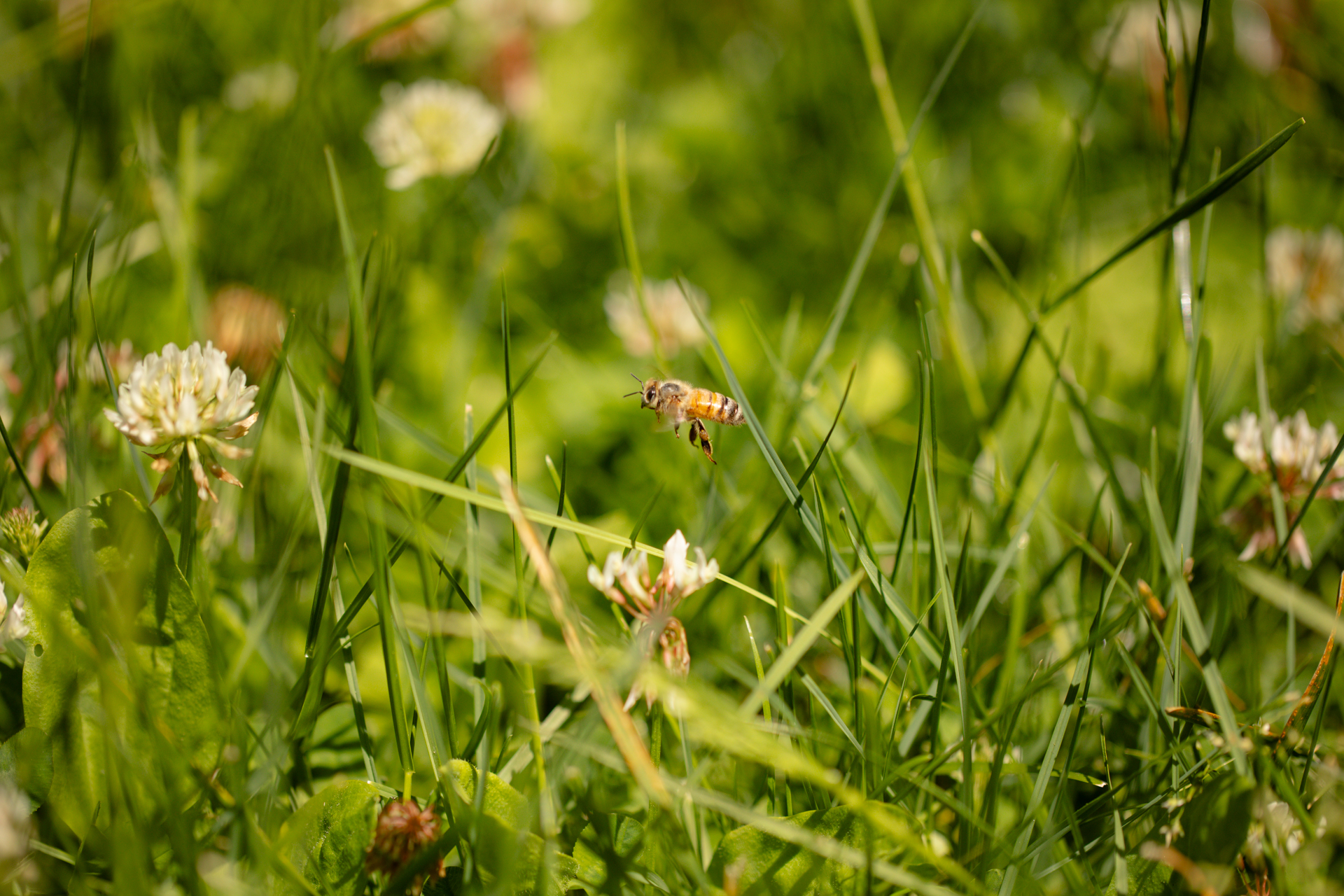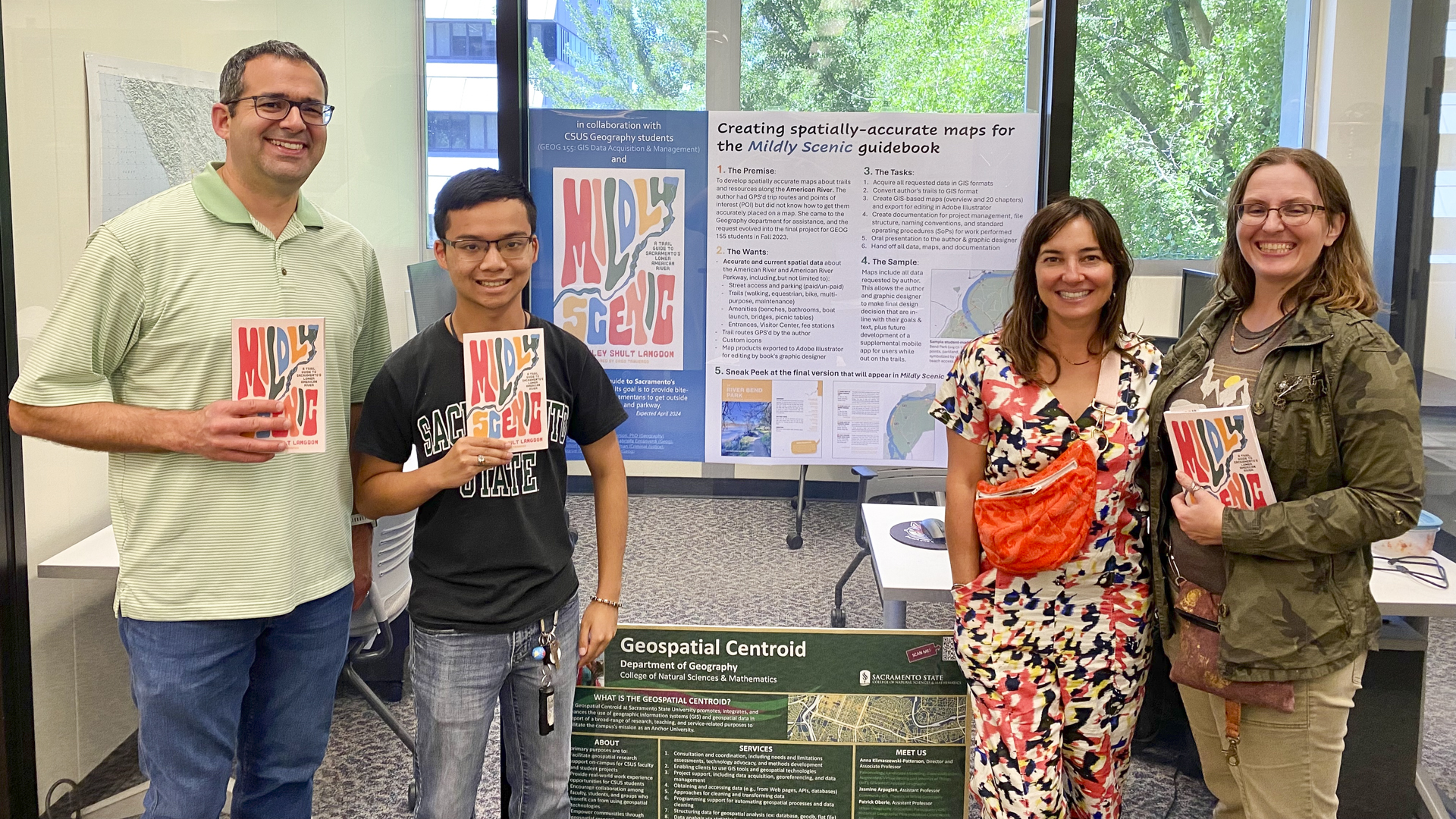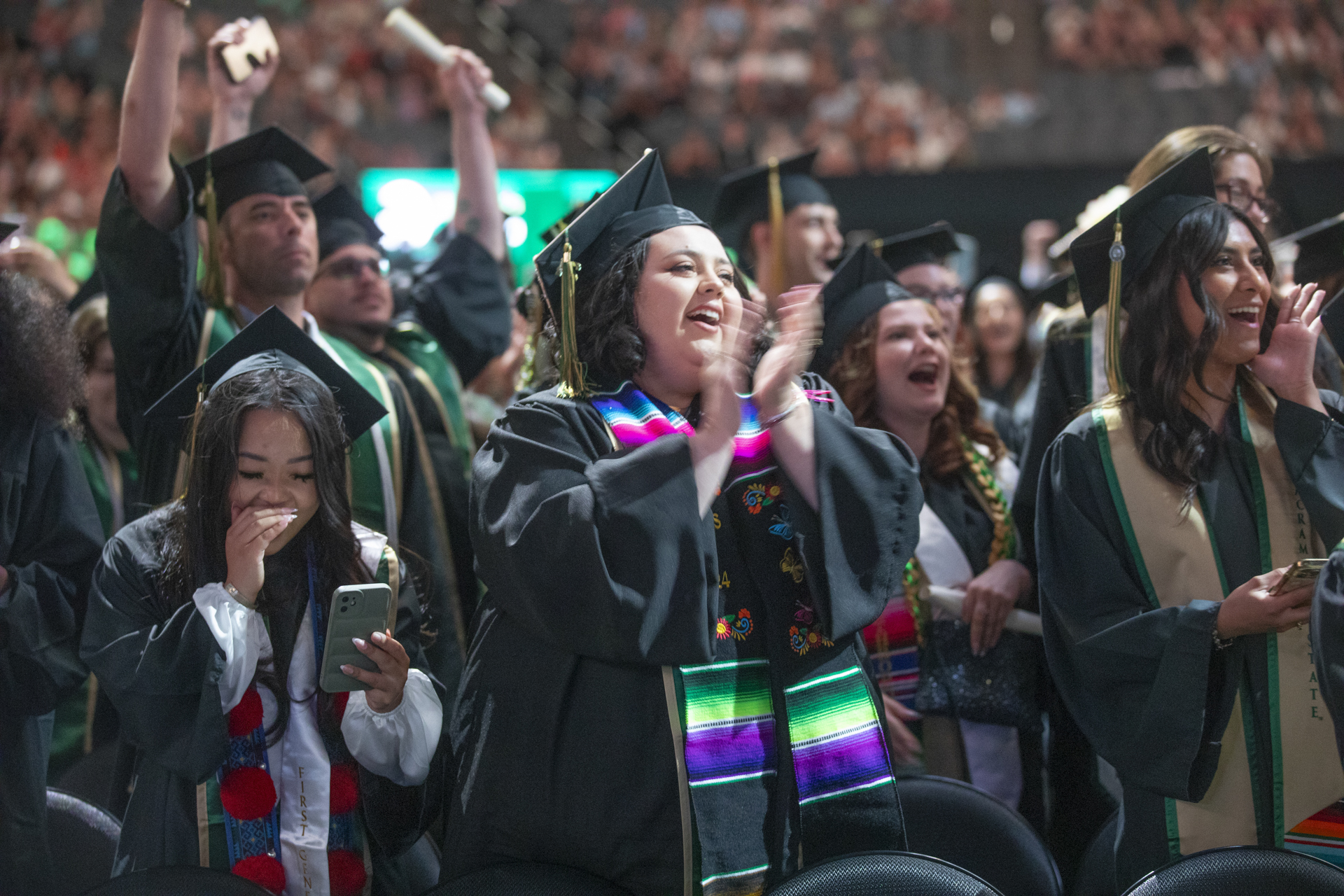Story Content
During No Mow May, Sac State allows campus grass to flourish to benefit pollinators

May 30, 2024
Sacramento State’s normally pristine campus turf has been looking a bit shaggy this May, and for good reason. Blooming flowers of clover and other weeds and plants are helping feed hungry bees and other pollinators.
The University is taking part in No Mow May, a movement that calls for allowing flowering plants to bloom for a longer period in spring, providing bees with nectar and pollen that they use to feed themselves and their offspring.
“Through the end of the month, we’re letting our grass grow wild to provide crucial habitats for pollinators like bees, butterflies and other essential creatures,” said Sari Smart, Sac State’s Energy and Sustainability coordinator.
“By allowing our green spaces to flourish, we are creating a vibrant ecosystem right here on campus.”
Bees are an essential part of agriculture, pollinating fruits, nuts and vegetables. But they are in peril. According to the Center for Biological Diversity, more than half of North America’s 4,000 native bee species are in decline, with about 25% at risk of extinction because of a wide range of factors including habitat loss.
“It just gives the bees more time to get the necessary pollen to feed their young, and to make honey in their hives.” -- Sari Smart, Sac State’s Energy and Sustainability coordinator
One way to reduce that loss is to forgo mowing during certain times of the year. No Mow May has gained traction in recent years as sustainability experts have urged a pause in mowing during that month.
Sac State’s Sustainability and Grounds and Landscape departments are collaborating on the No Mow May project, leaving large swaths of the campus overgrown for the month.
The University has received many accolades for its environmental practices, including recognition as an affiliate of Bee Campus USA. Among other practices, the campus maintains honeybee hives, whose residents produce Hornet Honey for bottling and consumption.
Many other varieties of bees flit about the campus, feeding on nectar from native plants.
“The bees and other pollinators help move pollen from plant to plant and tree to tree to help them produce the fruits, nuts and other things that we grow here in the Sacramento area,” said Smart.
Sac State’s grounds crews will start up their mowers again in June, but Smart advised businesses, agencies and homeowners to mow less if possible.
“It just gives the bees more time to get the necessary pollen to feed their young, and to make honey in their hives,” she said.
“And more pollen means more Hornet Honey.”
Media Resources
Faculty/Staff Resources
Looking for a Faculty Expert?
Contact University Communications
(916) 217-8366
communications@csus.edu


